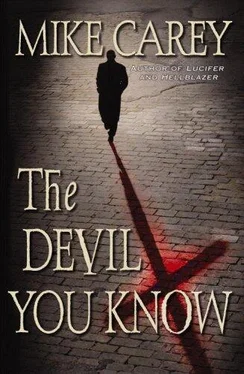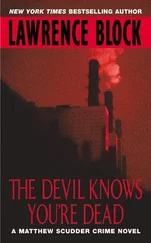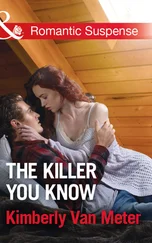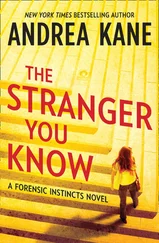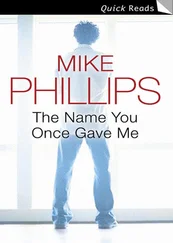“Metaphysics 101,” Alice prompted me, her voice shaky.
“Right. Blake hit the nail bang on the head, didn’t he? ‘ What is now proved was once only imagined. ’” Thanks for that one, Pen. “If ghosts are real, then a whole raft of things that you were happy to think of as metaphors, or folk myths, or medieval clutter left behind in the wake of the Enlightenment turn out to be sober truth. You start wondering about Heaven. And Hell. You start asking yourself what’s going to happen to you when you turn your toes up. Are you going to be stuck in some dismal pit of a place just because you lived there or worked there or died there? Is the afterlife like this one, only with no sex, no drugs, and no time off for good behavior?”
Alice nodded, slowly and unhappily.
“Well, the answer is nobody knows. If you’re religious, you could talk to a priest about it. Or a rabbi, or whatever flavor you favor. But I’ll tell you how I get through it.”
She was watching me, expectantly. Someone else was watching, too. I felt that prickle again; that pressure on my skin lighter than touch. I glanced into the shadows near the door, thought that maybe I saw someone moving there.
“I stick with Blake,” I said, “and I draw a line. Between what’s proved and what’s just jerking off—premature reification. If I see my Aunt Emily get decapitated in a freak piano-tuning accident, and then a bodiless shape that looks just like Auntie Em comes walking through my bedroom wall at three in the morning with its head tucked underneath its arm, I don’t just jump for the nearest conclusion—which is that whatever is on the label has to be in the box. You know the Navajo?”
“The Navajo Indians?” Her expression was blank, nonplussed.
“Yeah, them. They see ghosts as some kind of evil force of nature. Chindi , they call them. They’re the part of the soul that can’t go on to something better—all the nasty impulses you don’t usually follow up on. All your selfishness and greed and stupidity. They’re not you; they’re just a sort of negative afterimage you leave behind you when you trade up to eternal life.”
Alice didn’t look convinced; it was probably a bad example.
“All I mean is, there’s no automatic assumption that ghosts are people trapped in some fuck-awful repetition of what they used to do when they were alive. We don’t know what they are. We don’t have any way of finding out.”
Her uncertainty was hardening into something else.
“And that makes it okay for you to destroy them?” she asked, her voice almost too low to hear.
I shrugged. “Is that what I do? That’s another unknown.”
“Not to you.”
“Yes, to me.”
“I don’t see that. You must know what it is you’re doing.”
This was novel. I was meant to be talking Alice through this very sudden existential crisis—and instead I found myself being asked to justify my own existence. It must say something profound and worrying about me that I didn’t just leave her to it.
“At first necromancy was something I did by accident,” I told her. It was the easiest way to put it, but accident was a pretty pale word for it all the same.
“Accident?”
“Yeah. I mean, without wanting to do it. Without deciding.” I looked toward the door again, then back to meet her unblinking gaze. “It’s easy to summon ghosts. Easier than sending them away, I mean. If you’re in the right place, and there are a lot of them around, it can be enough just to start talking to them. Or look at them. Or lift your hand and beckon. With me, it’s music.”
“What is? How do you mean?”
“The trigger. The thing I use to bring them and then to bind them. I play a tin whistle.”
She laughed incredulously.
“You don’t!”
I slipped my hand into my coat and brought it out.
“Jesus,” said Alice with a sort of pained wonder. “The magic flute!” I let her take it from me, and she sighted along it at my face as though it was a tiny rifle. That reminded me of Ditko pretending to fire bullets at my feet to make me dance—and then of the way the whistle felt hot in my dream after I’d played it. A shiver of genuine unease passed over me. I took the whistle back from her and replaced it where it belonged: ready to hand, and only to my hand.
“But exorcising the ghosts is harder?” she prompted, giving me that look again.
“Usually a lot harder. But you can’t make any kind of a rule about it—each one’s different.” I changed my tack. “Are you good at maths?”
“Better than I am at Navajos. I took it to A level—and I can multiply four-digit numbers in my head.”
“Okay, then. David Hilbert. Prussian mathematician in the late nineteenth century. He reckoned you could make a mathematical model of anything—a chair, a sentence, the swirl of cream in a coffee cup, which side your balls will hang down when you put your pants on, whatever.”
“Okay.”
“Well, that’s a way of looking at it that sort of works. I play a tune, and the tune is a model. I’m modeling the ghost. I’m . . . describing it in sound. But then after that—if I’ve done it right—it cuts both ways. I’ve made a link of some kind; I’ve tied the ghost to the sound.”
I stopped. Words weren’t adequate for what I did; I always got myself twisted round and upside down when I tried to explain it. But Alice was running with the idea.
“Something like a voodoo doll,” she said tentatively. “I mean, a voodoo doll is a model that’s intended to work in exactly that way. You make it represent a real person, either with a spell or with a fetish, like a lock of their hair or something. Then when you stick pins in the doll, the person who the doll is meant to be feels the pain.”
I was impressed. That was a much better analogy than the one I’d been aiming for.
“Right,” I agreed. “Well, that’s what I do. I make the tune represent the ghost. I knit them together—I make them become two parts of the same thing. Then when I stop playing . . .”
I let the sentence hang. Again, I’d reached the point where language couldn’t take me any further. What did happen to the loose spirits I packaged up and shipped out? Where was I sending them? Did they go on to greener pastures or just stop existing? I didn’t know. I’d never found an explanation that didn’t sound like bullshit.
“When you stop playing?” Alice pressed.
“Then the ghost stops being there. It goes away.”
“Where to?”
“Wherever music goes when it’s not being played.”
It wasn’t what she’d expected to hear, and it left her if anything even more unhappy than before. I should have known it would.
What could I tell her? My own definition of life extended from cradle to grave, and what came after that I saw as something else. If you could find your way to Heaven or Hell, all well and good. If you couldn’t, you had no damn business hanging around the local chip shop or in your wife’s sock drawer. In other words, if there was a natural order at all, then I was part of it—a moving finger that never wrote anything down but was really good for canceling things out.
“Try a priest,” I suggested again, all out of homespun wisdom. “Or just someone you love and trust. Try Jeffrey, maybe. Talk it through. Don’t run away from it. In my experience, there’s nowhere to run to.”
I suddenly realized at that point that Alice was staring at me in a sort of pained bewilderment.
“Jeffrey?” she said with an incredulous emphasis.
“What?”
“‘Try Jeffrey’? Is that what you said?”
I thought about it, and it was.
“I meant,” I tried again, “that you should talk to someone who—”
Читать дальше
